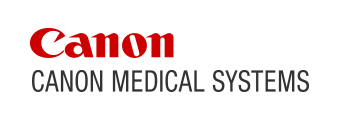News | Press Releases
October 28, 2011
TOSHIBA INTRODUCES "AIDR 3D", ROBUST DOSE MANAGEMENT SOFTWARE
Toshiba presents improved, dose-reduction software that lowers patient dose up to 75 percent, while providing better image quality routinely.
Otawara, Tochigi, Japan, October 2011 -Toshiba Medical Systems Corporation has introduced the next generation of dose reduction technology - AIDR 3D. This advanced software lowers the radiation dose to the patient by up to 75 percent compared to conventional scanning. This results in the best image quality at the lowest possible dose, enabling clinicians to make better and more accurate diagnoses routinely.
This innovative new technology is available with Toshiba's Aquilion ONE™, Aquilion™ Premium edition, Aquilion PRIME and Aquilion CXL edition systems.
Adaptive Iterative Dose Reduction 3D (AIDR 3D)
AIDR 3D is the abbreviation of Adaptive Iterative Dose Reduction 3D and is a sophisticated algorithm that has been specially designed to work in both the three dimensional reconstruction data and raw data domains. The collective AIDR 3D process results in robust noise reduction, which is essential for achieving ultra low dose examinations in routine clinical CT imaging. AIDR 3D can be routinely applied to all clinical acquisition modes and is able to remove up to 50 percent of image noise maintaining image quality, resulting in dose reduction of up to 75 percent.
Integrated, Robust dose management
Integration of dose reduction technologies is essential for optimal dose management. Therefore, AIDR 3D has been seamlessly integrated with SUREExposure™ 3D, Toshiba's automatic tube current modulation software.
SUREExposure 3D modulates the exposure for each patient, based on a pre-set, target level of image quality. When combined with AIDR 3D, x-ray exposure is automatically reduced before the scan, while maintaining the pre-programmed image quality adjusted for the expected level of noise reduction. This combination provides a unique solution for robust dose management.
"As a global market leader, Toshiba makes the extra effort to provide systems, solutions and advanced technologies for Ultra Low Dose CT examinations," said Yasuo Nobuta, Vice President and General Manager, CT Systems Division, Toshiba Medical Systems Corporation. "By seamlessly integrating AIDR 3D with SUREExposure 3D Toshiba takes a unique position in optimizing dose management and reducing patient dose to sub mSv level."
Clinical experience in Monash Medical Centre, Melbourne, Australia

Dr. John Troupis, Monash Medical Centre, Melbourne, Australia.
"The Toshiba solution for iterative reconstruction technology (AIDR 3D) has proven to be an effective method for reducing patient dose for every routine clinical examination performed on our CT system. AIDR 3D works to reduce image noise by up to 50% while maintaining spatial resolution, which is an impressive development. Reduced noise in the reconstructed images permits reduced radiation dose to achieve a similar level of diagnostic image quality. In our clinical setting dose reduction of up to 75% is achieved routinely as AIDR 3D is integrated into the automatic exposure control software, which prospectively calculates the tube current for each examination based on our preferred reference image quality. Quite simply there is no guess work needed, and the perfect balance of image quality at reduced dose is completely automated with consistent results.
The comprehensive dose reduction solution offered by Toshiba was implemented into our routine clinical practice during the first morning the software was introduced. The additional reconstruction time that is required by the iterative technique is measured in mere seconds, which has had no impact on our clinical workflow.
I have seen a lot of advances in CT technology over the years that have expanded the clinical utility of CT, and now we have advanced technology that is dramatically increasing patient safety."

Image without AIDR 3D (left) and with AIDR 3D (right) - Courtesy Monash Medical Centre, Melbourne, Australia

Cardiac scan with an effective dose of 0.4mSv - Courtesy Monash Medical Centre, Melbourne, Australia
Commitment
Toshiba's commitment to reduce dose in CT is an ongoing project that began with the design of the first CT system back in 1978. And it doesn't end today. "Although AIDR 3D is once again a significant step forward in reducing patient dose, I can assure you that our engineers will continue to develop state-of-the-art technologies to offer the most robust dose management, with excellent diagnostic examination results," said Naofumi Watanabe, Senior Manager, CT Systems Development Department, Toshiba Medical Systems Corporation.
In line with this commitment, a comprehensive training program is available that ensures that operators become proficient in taking advantage of Toshiba's dose reduction technologies available for every scan, providing clinicians with maximum image quality at the lowest possible dose to the patient.
====== END ======
NOTE: Due to local regulatory processes, AIDR 3D may not be available in each country. Please contact your local Toshiba sales representatives for the most current information.
Aquilion, Aquilion ONE and SUREExposure are trademarks of Toshiba Medical Systems Corporation.
About Toshiba Medical Systems Corporation
Toshiba Medical Systems Corporation is a leading worldwide provider of medical diagnostic imaging systems and comprehensive medical solutions, such as CT, X-ray and vascular, ultrasound, nuclear medicine, and MRI systems, as well as information systems for medical institutions. Toshiba Medical Systems Corporation has been providing medical products for over 80 years. In October 2003, Toshiba Medical Systems Corporation, which prior to that time had been operating as the Medical Systems Division of Toshiba Corporation ("Toshiba"), was established as a stand-alone member of the Toshiba group. Toshiba Medical Systems Corporation is a wholly-owned subsidiary of Toshiba.
For more information, visit www.toshibamedicalsystems.com



